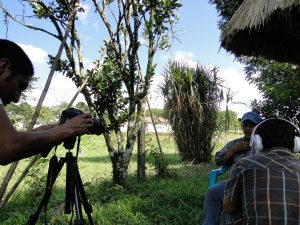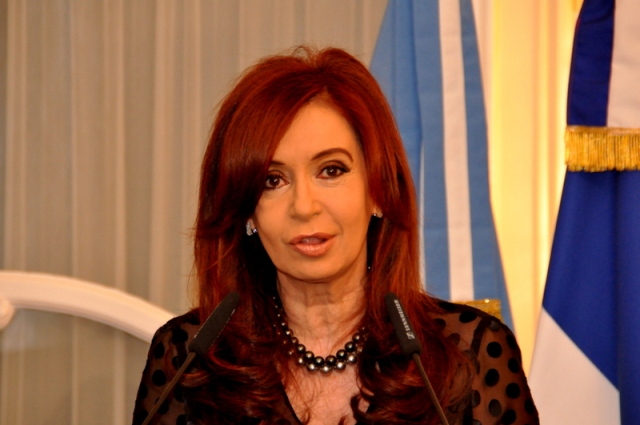10 Apr 2018 | Awards, Fellowship 2018, News
[vc_row][vc_column][vc_video link=”https://youtu.be/jPOdNm8Sxos”][vc_column_text]Avispa Midia is an independent online magazine that prides itself on its daring use of multimedia techniques to bring alive the political, economic and social world that is Mexico and Latin America.
“As with avispas (wasps), insects that exist across the world that are equipped with various eyes or ocelli capable of distinguishing between light and dark, Avispa Media seeks to participate in and witness the variety of shades that colour reality,” said Avispa Midia. “We believe that modern-day communication should be nourished by the varied formats and technology that characterise new virtual journalism, such as integrating multimedia tools that make information more dynamic. What sets us apart is our critical, far-reaching eye, primarily through reportage and investigative journalism.”
In the Spanish version, the site’s use of pictures, videos, music and maps to illustrate its stories is particularly striking.
But the beauty of the design masks the serious intent of this collective of journalists and researchers who are seeking to challenge violence and corruption in the region and reflect the lives of marginalised and indigenous people.
They specialise in investigations into organised criminal gangs and the paramilitaries behind mining mega-projects, hydroelectric dams, and the wind and oil industry.
The Latin American world they report on is extremely violent. Between 2000 and 2016, at least 105 journalists were murdered in Mexico for carrying out their work. According to Reporters Without Borders, in 2016 Mexico became third highest country in the world for journalist killings — the most deadly outside war zones.
Avispa Midia says its work has meant that human rights organisations and NGOs have taken action on slave labour and undocumented migrants as a result of their reports.
The site however suffers from scant resources and their main challenge is to be able to establish some form of continuous financing, since they do not have a fixed budget to do their work and no one receives a salary.
Topics that Avispa Midia has addressed in the last year include: US interference in Mexico and Central America; the persecution of peasants in Honduras; land restitution demands by displaced people in Guatemala and the first visit of Mexican president Enrique Peña Nieto to the city of Oaxaca.

Many of the reports in the last 12 months have been focused on Mexico and Central America, where the media group has helped indigenous and marginalised communities report on their own stories by helping them learn to do audio and video editing.
In the future the journalists want to create a multimedia journalism school for indigenous people and young people from marginalised neighbourhoods, so that ordinary citizens can inform the world what is happening in their region, and break the stranglehold of the state and large corporations on the media.
“In a field where war has contaminated even communication, where truths but also actions are disputed, having been nominated for the Index of Censorship award lifts our courage up,” said Avispa Midia. “And it enables us to reaffirm our investment in the truth and the tenacity of the voices and experiences we carry through each word and each image documented by Avispa Midia. For us, this represents respect and appreciation for the work we have done. This means expanding the support of communities, civil organisations and academic groups that supported us against the violence exerted against journalists in Mexico.”
See the full shortlist for Index on Censorship’s Freedom of Expression Awards 2018 here.[/vc_column_text][/vc_column][/vc_row][vc_row full_width=”stretch_row_content” equal_height=”yes” el_class=”text_white” css=”.vc_custom_1490258749071{background-color: #cb3000 !important;}”][vc_column width=”1/2″][vc_custom_heading text=”Support the Index Fellowship.” font_container=”tag:p|font_size:28|text_align:center” use_theme_fonts=”yes” link=”url:https%3A%2F%2Fwww.indexoncensorship.org%2Fsupport-the-freedom-of-expression-awards%2F|||”][vc_column_text]
By donating to the Freedom of Expression Awards you help us support
individuals and groups at the forefront of tackling censorship.
Find out more
[/vc_column_text][/vc_column][vc_column width=”1/2″ css=”.vc_custom_1521479845471{background-image: url(https://www.indexoncensorship.org/wp-content/uploads/2017/05/2017-awards-fellows-1460×490-2_revised.jpg?id=90090) !important;background-position: center !important;background-repeat: no-repeat !important;background-size: cover !important;}”][/vc_column][/vc_row][vc_row][vc_column][vc_basic_grid post_type=”post” max_items=”4″ element_width=”6″ grid_id=”vc_gid:1523523668709-d546d4ac-7872-3″ taxonomies=”10735″][/vc_column][/vc_row]
8 Jan 2018 | Argentina, Brazil, Colombia, Ecuador, Honduras, Mexico, News, Venezuela
[vc_row][vc_column][vc_column_text]

Latin America is home to a growing number of independent publications, like Venezuela’s Efecto Cocuyo, that do not depend on government advertising
With general elections scheduled in six Latin American countries this year, and another six to follow in 2019, the relationship between the media and democracy could have a major impact on the future of the region. However, mounting financial pressures are robbing many media outlets of their objectivity and forcing them to toe pro-government lines.
With traditional advertising revenue in decline, Latin American governments are using vast publicity budgets to keep cash-strapped publications afloat. In return, the media are expected to portray their benefactors in a favourable light.
According to the NGO Freedom House, much of the media in Brazil, Colombia, Ecuador, Honduras and Mexico is heavily dependent on government advertising, resulting in widespread self-censorship and collusion between public officials, media owners and journalists.
“The history of journalism in Latin America is a history of collusion between the press and powerful people,” said Rosental Alves, a Brazilian journalist and founder of the Knight Center for Journalism in the Americas, in an interview with Index. Sections of the media have become subservient, he explained, as any critical coverage could be punished with audits or a loss of advertising revenue.
Financial pressures on the media are particularly pronounced in Venezuela. Alves observed that the Nicolás Maduro regime has applied “waves of censorship” to the media by first decrying it as “the enemy of the people” and then buying up media companies to “make them friendly.”
Freedom House notes that “although privately owned newspapers and broadcasters operate alongside state outlets, the overall balance has shifted considerably toward government-aligned voices in recent years. The government officially controls 13 television networks, dozens of radio outlets, a news agency, eight newspapers, and a magazine.”
This is compounded by Venezuela’s severe economic problems and the virtual government monopoly on newsprint supplies that have led to newspaper closures, staff cutbacks and reduced circulation of critical media.
Mexico’s government has taken the more subtle approach of co-opting swathes of the media through unprecedented expenditure on advertising. According to the transparency group Fundar, President Enrique Peña Nieto has spent almost £1.5 billion on advertising in the past five years, more than any president in Mexican history. On top of that, state and municipal administrations have also spent millions on publicity in local media.
Darwin Franco, a freelance journalist in Guadalajara, told Index that government spending has led to some publications telling reporters “who they can and cannot criticise in their work.”
Then there is the infamous chayote, a local term for bribes paid to journalists in return for favourable coverage. Franco said Mexican reporters are particularly vulnerable to economic pressures or under-the-table incentives because it’s so hard for them to make a living.
“Freelance journalists in Mexico don’t receive the benefits that employees are legally entitled to,” he said. “National media outlets — and even some international ones — pay us minimal fees for stories, which in some cases don’t even cover the costs of reporting.”
Franco, who also teaches journalism at a local university, added that many reporters take on second jobs to supplement their income. With Mexican journalists making less than £450 per month on average, he acknowledged that “there may be people who are tempted” to take money from the government.
Despite these financial pressures, Alves is encouraged by the technology-driven democratisation of the media across Latin America, with increased internet penetration and the affordability of smartphones allowing people who could not afford computers to access nontraditional media for the first time.
These include rudimentary blogs, social media accounts and more sophisticated media startups, Alves said, with countries like Argentina, Brazil, Colombia, Mexico and even Venezuela home to a growing number of independent publications that do not depend on government advertising.
“We are living a time of the decline of advertisements as the main source of revenue for news organisations. On the one hand you have this huge decline in traditional advertising because of Google and Facebook getting all this money, and on the other hand you see the virtual disappearance of the entry barriers for becoming a media outlet,” Alves noted.
“We’re moving from the mass media to a mass of media because there’s this proliferation of media outlets that don’t depend on a lot of money,” he added. “If you can gather some philanthropic support or membership, or you’re just doing it by yourself, like many courageous bloggers are doing in many parts of the region, you don’t make any money but you don’t spend any money either.”[/vc_column_text][/vc_column][/vc_row][vc_row][vc_column][vc_custom_heading text=”Survey: How free is our press?” use_theme_fonts=”yes” link=”url:https%3A%2F%2Fwww.indexoncensorship.org%2F2017%2F12%2Fsurvey-free-press%2F|title:Take%20our%20survey||”][vc_separator color=”black”][vc_row_inner][vc_column_inner width=”1/4″][vc_icon icon_fontawesome=”fa fa-pencil-square-o” color=”black” background_style=”rounded” size=”xl” align=”right”][/vc_column_inner][vc_column_inner width=”3/4″][vc_column_text]
This survey aims to take a snapshot of how financial pressures are affecting news reporting. The openMedia project will use this information to analyse how money shapes what gets reported – and what doesn’t – and to advocate for better protections and freedoms for journalists who have important stories to tell.
More information[/vc_column_text][/vc_column_inner][/vc_row_inner][vc_separator color=”black”][vc_row_inner][vc_column_inner width=”1/2″][vc_single_image image=”97191″ img_size=”full” alignment=”center” onclick=”custom_link” link=”https://www.indexoncensorship.org/2018/01/tracey-bagshaw-compromise-compromising-news/”][/vc_column_inner][vc_column_inner width=”1/2″][vc_column_text]
Commercial interference pressures on the UK’s regional papers are growing. Some worry that jeopardises their independence.[/vc_column_text][/vc_column_inner][/vc_row_inner][vc_separator color=”black”][vc_row_inner][vc_column_inner width=”1/2″][vc_single_image image=”81193″ img_size=”full” alignment=”center” onclick=”custom_link” link=”https://www.indexoncensorship.org/2017/12/jean-paul-marthoz-commercial-interference-european-media/”][/vc_column_inner][vc_column_inner width=”1/2″][vc_column_text]
Commercial pressures on the media? Anti-establishment critics have a ready-made answer: of course, journalists are hostage to the whims of corporate owners, advertisers and sponsors. Of course, they cannot independently cover issues which these powers consider “inconvenient”.[/vc_column_text][/vc_column_inner][/vc_row_inner][vc_separator color=”black”][vc_row_inner][vc_column_inner width=”1/2″][vc_single_image image=”96949″ img_size=”full” alignment=”center” onclick=”custom_link” link=”https://www.opendemocracy.net/openmedia/mary-fitzgerald/welcome-to-openmedia”][/vc_column_inner][vc_column_inner width=”1/2″][vc_column_text]
Forget fake news. Money can distort media far more disturbingly – through advertorials, and through buying silence. Here’s what we’re going to do about it.
This article is also available in Dutch | French | German | Hungarian | Italian |
Serbian | Spanish| Russian[/vc_column_text][/vc_column_inner][/vc_row_inner][vc_separator color=”black”][/vc_column][/vc_row][vc_row][vc_column][vc_custom_heading text=”Don’t lose your voice. Stay informed.” use_theme_fonts=”yes”][vc_separator color=”black”][vc_row_inner][vc_column_inner width=”1/2″][vc_column_text]Index on Censorship is a nonprofit that campaigns for and defends free expression worldwide. We publish work by censored writers and artists, promote debate, and monitor threats to free speech. We believe that everyone should be free to express themselves without fear of harm or persecution – no matter what their views.
Join our mailing list (or follow us on Twitter or Facebook) and we’ll send you our weekly newsletter about our activities defending free speech. We won’t share your personal information with anyone outside Index.[/vc_column_text][/vc_column_inner][vc_column_inner width=”1/2″][gravityform id=”20″ title=”false” description=”false” ajax=”false”][/vc_column_inner][/vc_row_inner][vc_separator color=”black”][/vc_column][/vc_row][vc_row][vc_column][vc_basic_grid post_type=”post” max_items=”12″ style=”load-more” items_per_page=”4″ element_width=”6″ grid_id=”vc_gid:1515148254502-253f3767-99a5-8″ taxonomies=”8996″][/vc_column][/vc_row]
14 Dec 2012 | Americas
Attempts to push through a media law in Argentina could end up destroying one of the country’s most critical broadcast outlets. Ed Stocker reports
A bitter battle between Argentina’s largest media empire, Grupo Clarín, and the government shows no signs of ending. President Cristina Fernández de Kirchner, continues to try and force through a media law that would see the break up of the conglomerate, the most critical voice against her administration.
Three years ago Congress passed an anti-monopoly bill with broad aims of making the Latin American country’s audio-visual landscape a more democratic, plural environment. But critics argue that its real aim is to stifle dissenting voices, including Clarín.
The law has positive aspects on the surface, argued Guillermo Mastrini, a professor at Quilmes University specialising in media. He said the new bill allows non-profit organisations a third of Argentina’s much-coveted broadcast licences for the first time — potentially setting a benchmark for regional press standards.
“But the real idea that needs to be understood,” he explained, “is that the media law has been much more democratic in its drafting than its implementation. The government has used a decent law to punish broadcast media that doesn’t toe the official line.”

Argentinian president Cristina Fernández de Kirchner. Hugo Passarello Luna | Demotix
The implementation of the law has proved difficult since Clarín went to a tribunal over the constitutionality of a clause stating that companies with too many licenses — the right to broadcast in a certain region — would have to divest.
While a ruling on the constitutionality is still pending, Clarín was granted a temporary injunction. [Update 17/12: a judge has ruled this clause constitutional, and Clarín will now appeal. In the interim the federal media authority says it will now forcibly step in and start the transfer of licences.
What has ensued has been a complex and heated legal scuffle, with the government initially arguing that the injunction would end on 7 December, citing advice handed down by the country’s highest judicial body, the Supreme Court.
The government prepared for the 7 December deadline — when the law would apparently come into force — with fervour, saturating pro-government channels with adverts about a date they had renamed “7D” to give it a catchy ring. Clarín retaliated on its networks.
Then, at the last moment, an appeals court extended the injunction, despite the Supreme Court’s stance, thwarting the law once again.
For Daniel Dessein, freedom of expression president at the Argentine Association of Journalistic Entities (Adepa) group, 7D was part of the government’s increasingly confrontational stance towards the media.
“The government elected the date of 7 December as a historic and symbolic moment when the application of the law would allow democracy to triumph,” he said. “It chose a number and a letter for the day, 7D, which clearly alludes to D-Day and the Normandy invasion. The government was basically announcing an attack.”
That “attack” hasn’t gone the government’s way, and it has launched an appeal while strongly questioning the judiciary’s objectivity. The Permanent Council for the Protection of Judicial Independence, a national body of judges, in turn denounced what it called “institutional aggression” against judges.
According to Afsca, the body charged with implementing the media law, the proposed legislation isn’t singling out one group. Earlier this month, its president Martín Sabbatella said that “the spirit of Afsca has always been that no one is different and the rules are the same for everyone”.
Afsca argues that Grupo Clarín is the only media conglomerate that has refused to present divestment plans, from among the some 20 companies that exceed the new licence rule.
The media law continues to divide international opinion. The Florida-based Pan-American Press Society (SIP) sent a delegation to Argentina for the failed 7 December deadline. It later released a statement denouncing what it saw as “serious problems regarding the free exercise of journalism in the country”.
On the other hand, Frank La Rue, UN special rapporteur for freedom of expression, said on a visit to Argentina in October that the law was “a model for the whole continent and for other regions in the world”.
Clarín argues that its TV and radio stations are some of the few “independent” voices left in Argentina, a country where many stations are dependent on government advertising to stay afloat.
Advocates of the law say it provides a much-needed overhaul of legislation that dates back to the last military dictatorship (1976-83). But for Guillermo Mastrini, the turf war with Clarín is holding up its progressive elements.
“The government has focused its forces more on destroying Grupo Clarín than allowing new broadcast outlets, companies and ideas from civil society to flourish,” he said. “That is the great failure of this law.”
Ed Stocker is a freelance journalist based in Buenos Aires. Follow him on Twitter: @Ed_Stocker
Read more of his work on censorship and free expression here
13 Aug 2012 | Americas, Mexico
Mexican investigative journalist Lydia Cacho has fled the country after receiving death threats.
Cacho, a columnist for the daily Mexico City-based El Universal, tweeted on 4 August that “mafiosi are the ones that should be running, not us,” a week after telling Mexican authorities that she had received anonymous death threats via phone and e-mail for revealing the names of sex traffickers. (more…)




